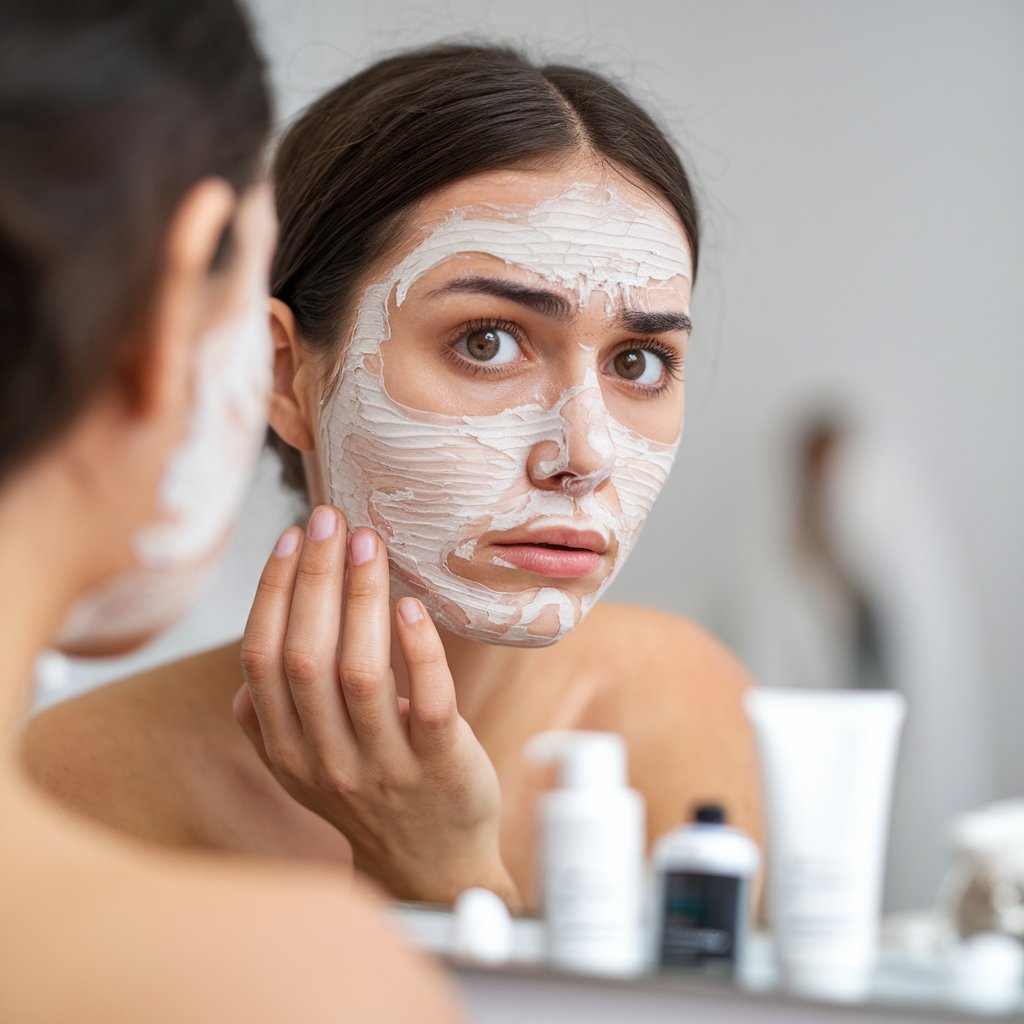Introduction
It’s disheartening to invest in skincare products and routines only to see little or no improvement in your skin. If you’ve been diligently following a skincare regimen and asking yourself, “Why is my skincare not working?”, there could be several reasons behind the lack of results. This article will explore common mistakes and factors that might be hindering your skincare’s effectiveness, along with practical tips to help you get back on track.
Common Reasons Skincare Might Not Be Effective
1. Incorrect Product Usage
Even the best skincare products won’t work if they’re not used correctly. Incorrect usage includes everything from applying too much or too little product to using them at the wrong time of day. Each skincare product has a specific purpose and should be used according to the instructions provided.
- Common Mistakes:
- Using a daytime product at night or vice versa.
- Applying too much serum, which can overwhelm the skin.
- Not using enough sunscreen, reducing its effectiveness.
Tip: Always read and follow the instructions that come with your skincare products, and don’t be afraid to seek guidance from a dermatologist or skincare professional.
2. Expecting Instant Results
Skincare is a gradual process, and it’s important to set realistic expectations. Many people abandon products too quickly, expecting to see immediate changes. However, most skincare products, particularly those targeting issues like acne, hyperpigmentation, or aging, take time to show visible results.
- Typical Timeframes:
- Acne Treatments: 4-6 weeks for noticeable improvement.
- Anti-Aging Products: 3 months for wrinkle reduction.
- Hyperpigmentation Treatments: 2-3 months for even skin tone.
- Moisturizers: Immediate to 1 week for hydration.
Tip: Give each product at least 6-8 weeks before evaluating its effectiveness, and remember that skincare is about consistency over time.
3. Using Incompatible Products
The effectiveness of your skincare routine depends not only on the individual products but also on how well they work together. Some ingredients can neutralize each other when layered, while others can cause irritation when used in combination. This can prevent your products from working as intended or even lead to worsening skin conditions.
- Common Incompatible Combinations:
- Vitamin C and AHAs/BHAs: Vitamin C is acidic and can be destabilized by AHAs/BHAs.
- Retinoids and Benzoyl Peroxide: Both are powerful acne treatments, but using them together can cause excessive dryness and irritation.
- Niacinamide and Vitamin C: Although newer formulations are often compatible, some older studies suggest that combining them may reduce effectiveness.
Tip: Research your products’ ingredients to ensure they work well together, or use them at different times of the day (e.g., Vitamin C in the morning, retinoids at night).
4. Ignoring Lifestyle Factors
Your skincare routine is only one aspect of maintaining healthy skin. Lifestyle factors such as diet, sleep, stress, and hydration play a crucial role in how your skin looks and feels. For example, a diet high in sugar and processed foods can exacerbate acne, while lack of sleep can lead to dark circles and a dull complexion.
- Key Lifestyle Factors:
- Diet: Focus on whole foods, rich in antioxidants, healthy fats, and vitamins.
- Hydration: Drink at least 8 glasses of water a day to keep skin hydrated.
- Sleep: Aim for 7-9 hours of quality sleep each night.
- Stress Management: Incorporate relaxation techniques like meditation, yoga, or deep breathing exercises.
Tip: Make sure your lifestyle supports your skincare efforts by maintaining a balanced diet, staying hydrated, and managing stress effectively.
Additional Considerations
1. Environmental Factors
Environmental factors like pollution, sun exposure, and extreme weather conditions can also impact your skin and the effectiveness of your skincare products. Pollution can clog pores and lead to breakouts, while UV rays can cause premature aging and hyperpigmentation.
- How to Protect Your Skin:
- Sunscreen: Use a broad-spectrum SPF 30 or higher every day, even when it’s cloudy.
- Antioxidants: Incorporate antioxidant-rich products, like Vitamin C serums, to fight free radical damage.
- Pollution Protection: Use products designed to shield the skin from environmental pollutants.
Tip: Adapt your skincare routine to your environment—use lighter products in hot, humid weather and richer products in cold, dry climates.
2. Product Expiration and Storage
Skincare products have a shelf life, and using expired products can result in reduced effectiveness or even adverse reactions. Additionally, how you store your products can affect their potency. For instance, Vitamin C serums can oxidize and lose effectiveness if exposed to light and air.
- Signs of Expired Products:
- Change in color or texture: If a product has turned brown, separated, or developed a strange consistency, it may be expired.
- Unpleasant odor: A change in smell is a strong indicator that a product is no longer good.
- Lack of effectiveness: If a product isn’t performing as it used to, it might be past its prime.
Tip: Check the expiration dates on your products and store them in a cool, dark place to extend their shelf life.
Conclusion
If you’re wondering, “Why is my skincare not working?”, it’s time to reassess your routine, product usage, and lifestyle factors. By ensuring you’re using the right products correctly and being patient with your routine, you can start to see the improvements you’ve been hoping for. Remember, skincare is a journey, and with the right approach, you can achieve healthy, glowing skin.
FAQs
1. How long should I give a new skincare product to work?
- It’s best to give a new skincare product at least 6-8 weeks to see if it’s effective before deciding whether to continue using it.
2. Can I use products from different brands in my skincare routine?
- Yes, but it’s important to ensure the products are compatible and won’t cause irritation or neutralize each other’s effectiveness.
3. How can I tell if a product has expired?
- Look for changes in color, texture, or smell, as well as reduced effectiveness. Always check the expiration date on the packaging.

